MS Under the Surface
It’s easy to look up common symptoms of MS on the internet or read about the diagnosis process or treatment options. It’s much more difficult to capture the true impact of MS for those who live with the condition. To hear from real people with MS and their caregivers, we conducted a survey, and over 5000 people shared their experiences with the physical and emotional aspects of MS.
Career changes
For many people, their career is a huge part of their identity. Therefore, it can be really devastating when MS and its numerous symptoms affect their ability to work. Many try to cope with the changes by reducing the number of hours that they work or by changing careers altogether to something more accommodating. However, nearly half of those who took our survey reported having to go on disability due to their MS.
Problems with progression
Fear of the unknown is a big part of life with MS. Each day is so unpredictable that it can be impossible to plan ahead. For those with secondary-progressive MS or primary-progressive MS, fear of increased disability and disease progression are huge concerns.
The impact of relapses
Those with relapsing MS reported that they know they’re having a relapse when “everything gets worse.” During a relapse, existing symptoms can get worse, or new ones can appear out of the blue. Fear of future relapses are a major source of concern for many with MS.
Intimate issues
MS symptoms are often invisible to outsiders, so many people with MS report that their friends and family have trouble understanding what they go through. This can lead to feelings of isolation and loneliness, which affects all types of relationships, including intimate relationships. In the In America survey, many respondents reported that their physical and emotional symptoms negatively impacted their sex lives.
Challenges of caregiving
Caregivers for people with MS often feel helpless while watching their loved ones experience the challenges of a chronic condition. They frequently provide emotional support as well as physical assistance, but they sometimes have to put their own needs on the back-burner, which can cause stress or loneliness. Despite the unique difficulties caregivers face, they report feeling needed and valuable in their relationships with their loved ones that have MS.
How to help
People living with MS, both patients and caregivers, often need help but feel unable to ask for it. Friends and family can do their part by learning as much as they can about MS in order to better understand their loved ones coping with the condition. They can also offer their time and energy in more tangible ways and help alleviate some of the challenges their loved ones face.
The Multiple Sclerosis in America 2018 survey was conducted online from February through May of 2018. Of the 5,484 people who completed the survey, 5,320 were people who have been diagnosed with Multiple Sclerosis and 164 were caregivers of people with Multiple Sclerosis. We gained valuable insights from the community, and we wanted to share some of the information with you here - thank you to those of you who shared with us!

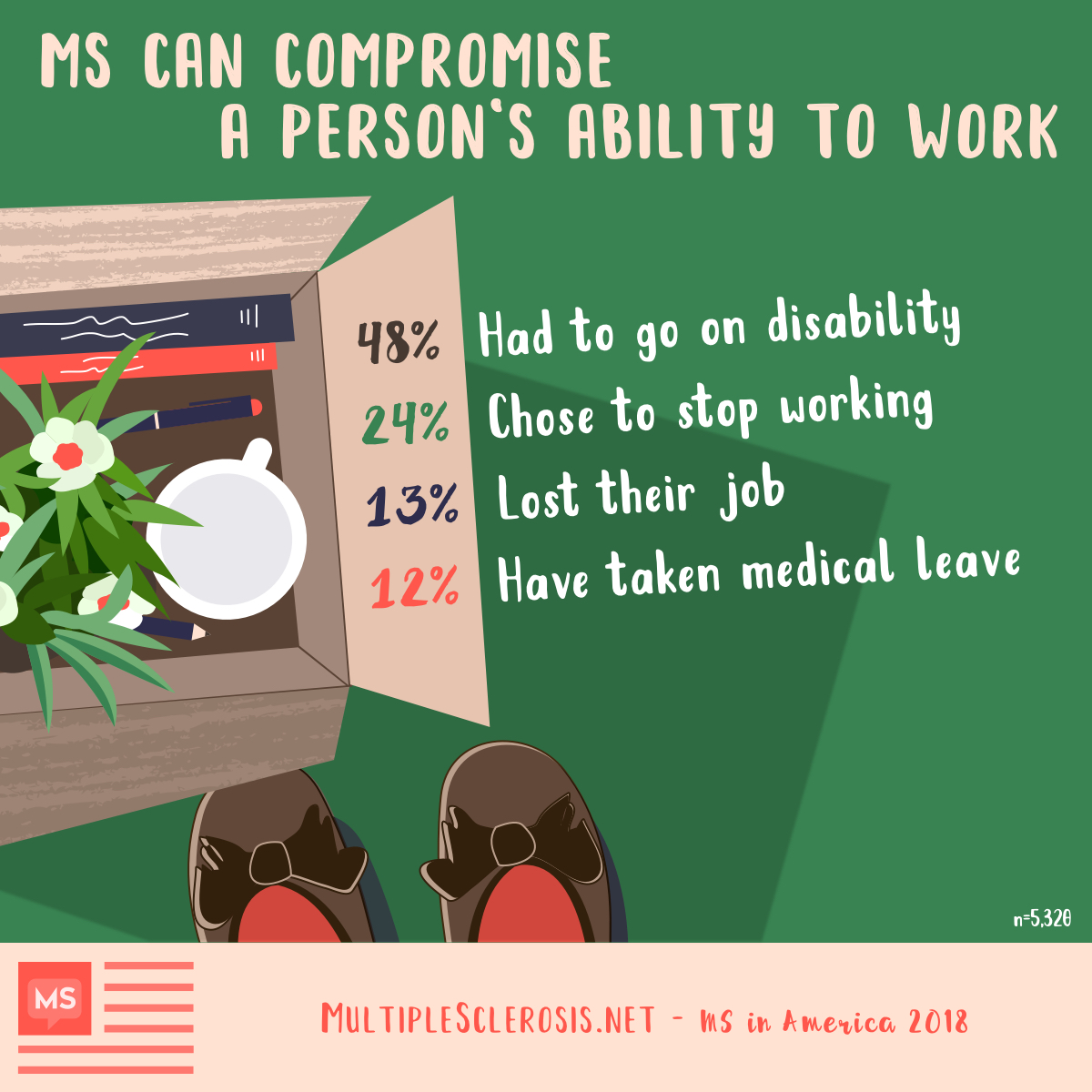
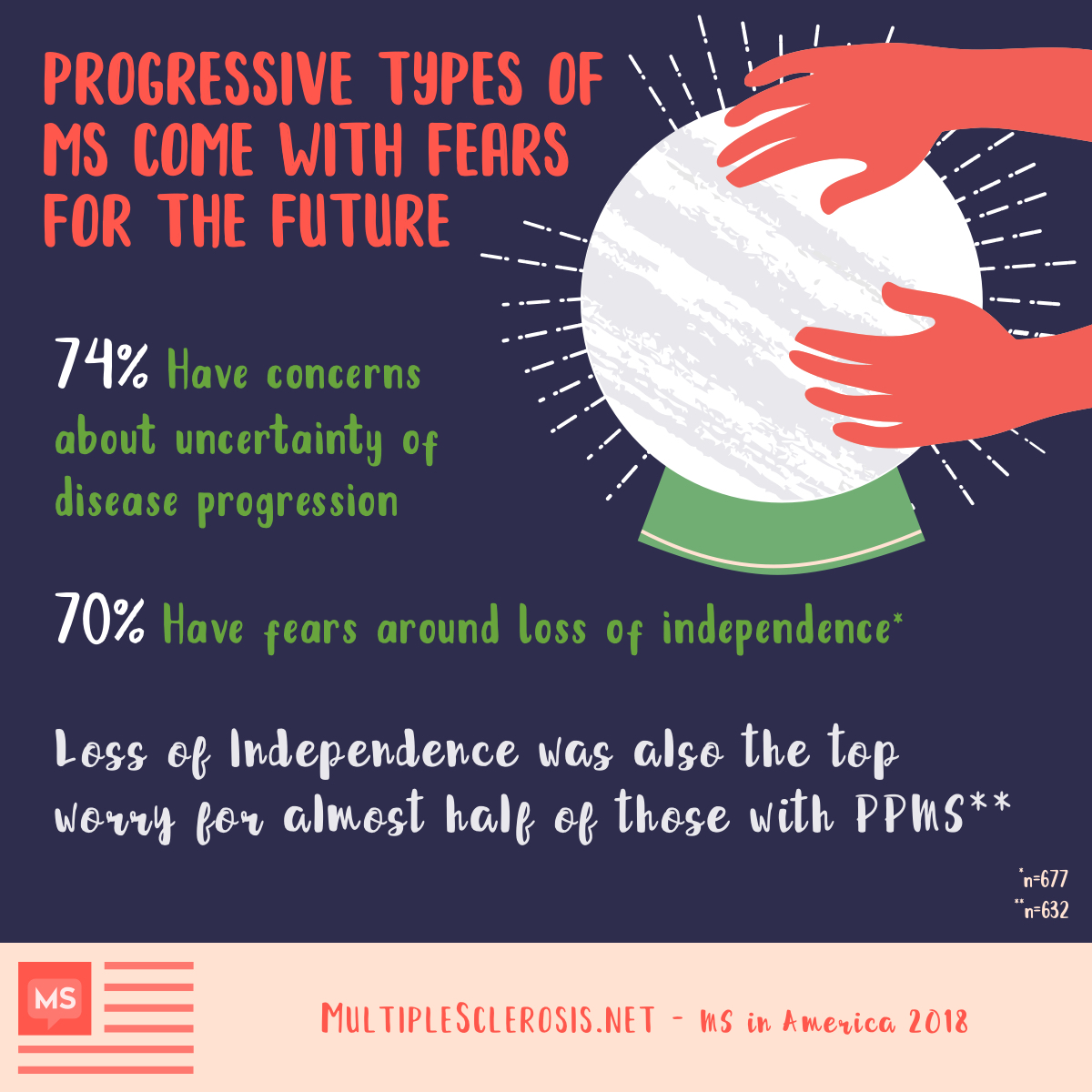
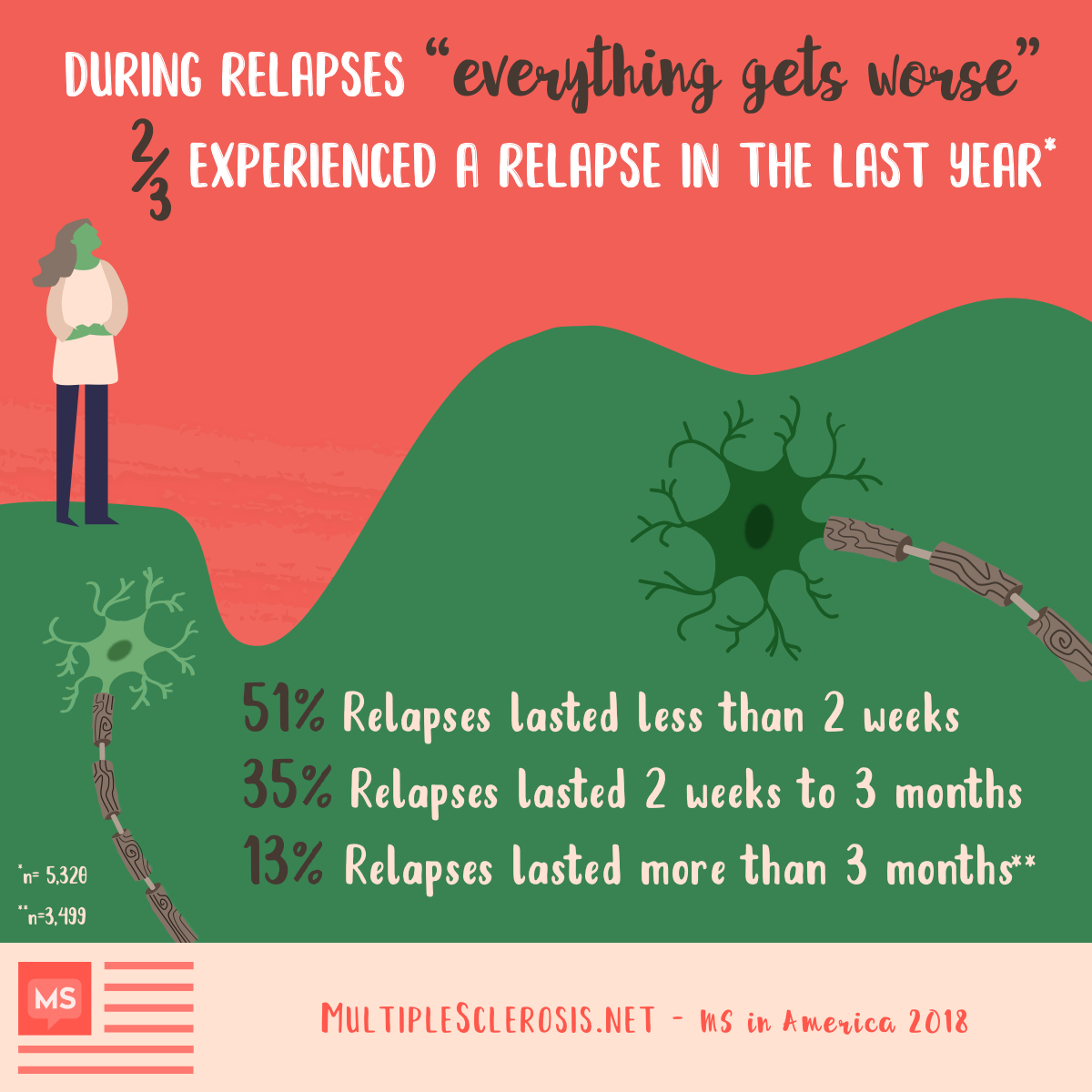
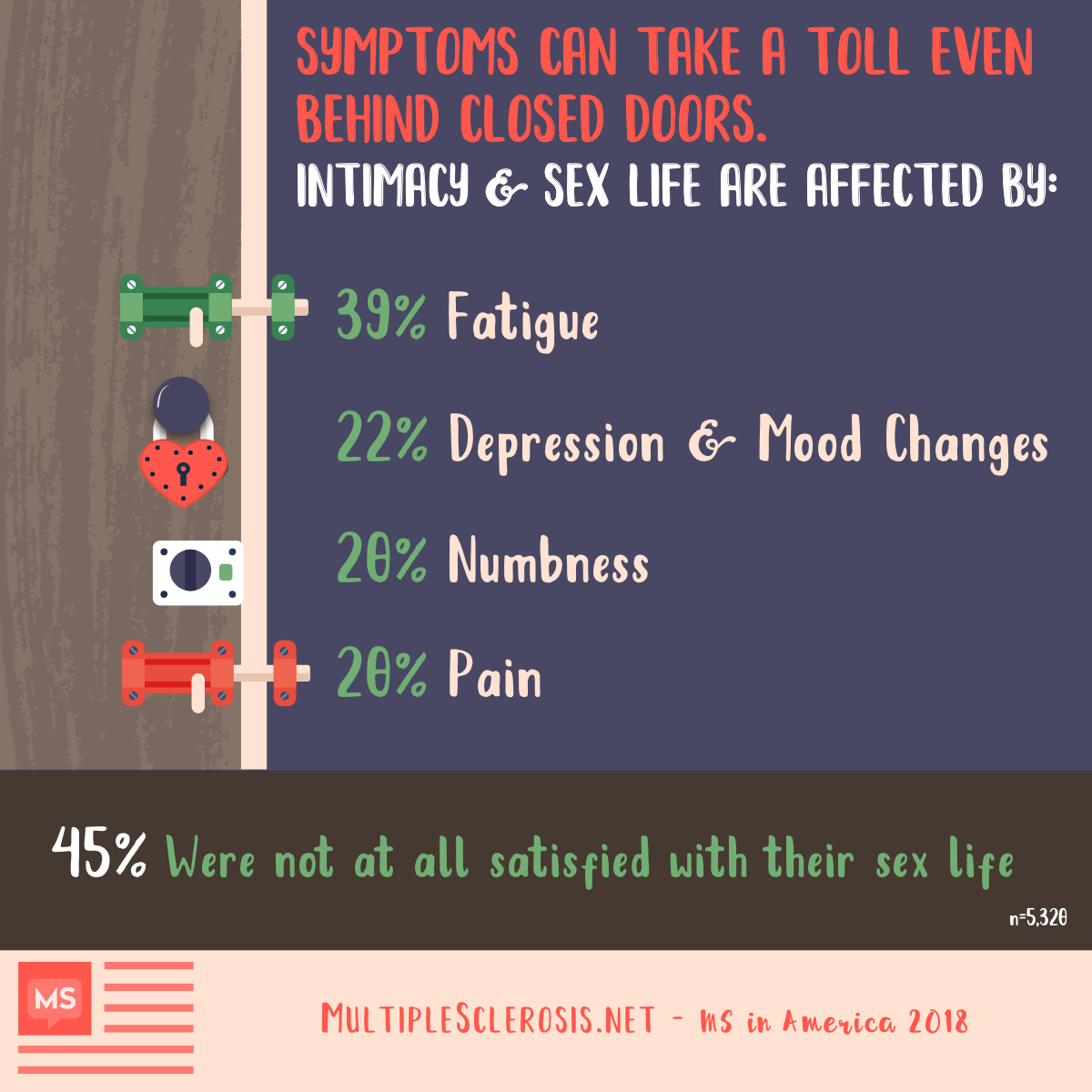
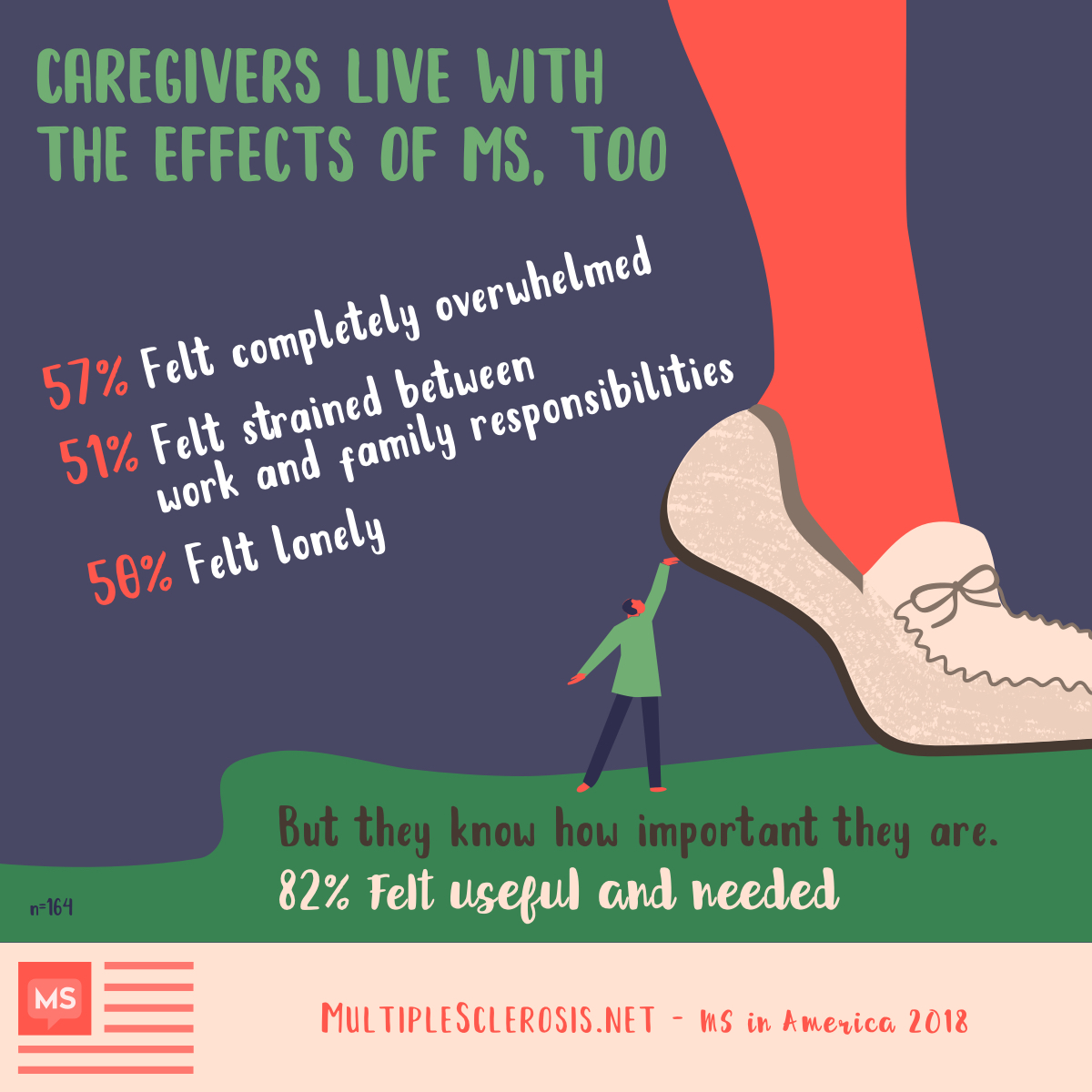
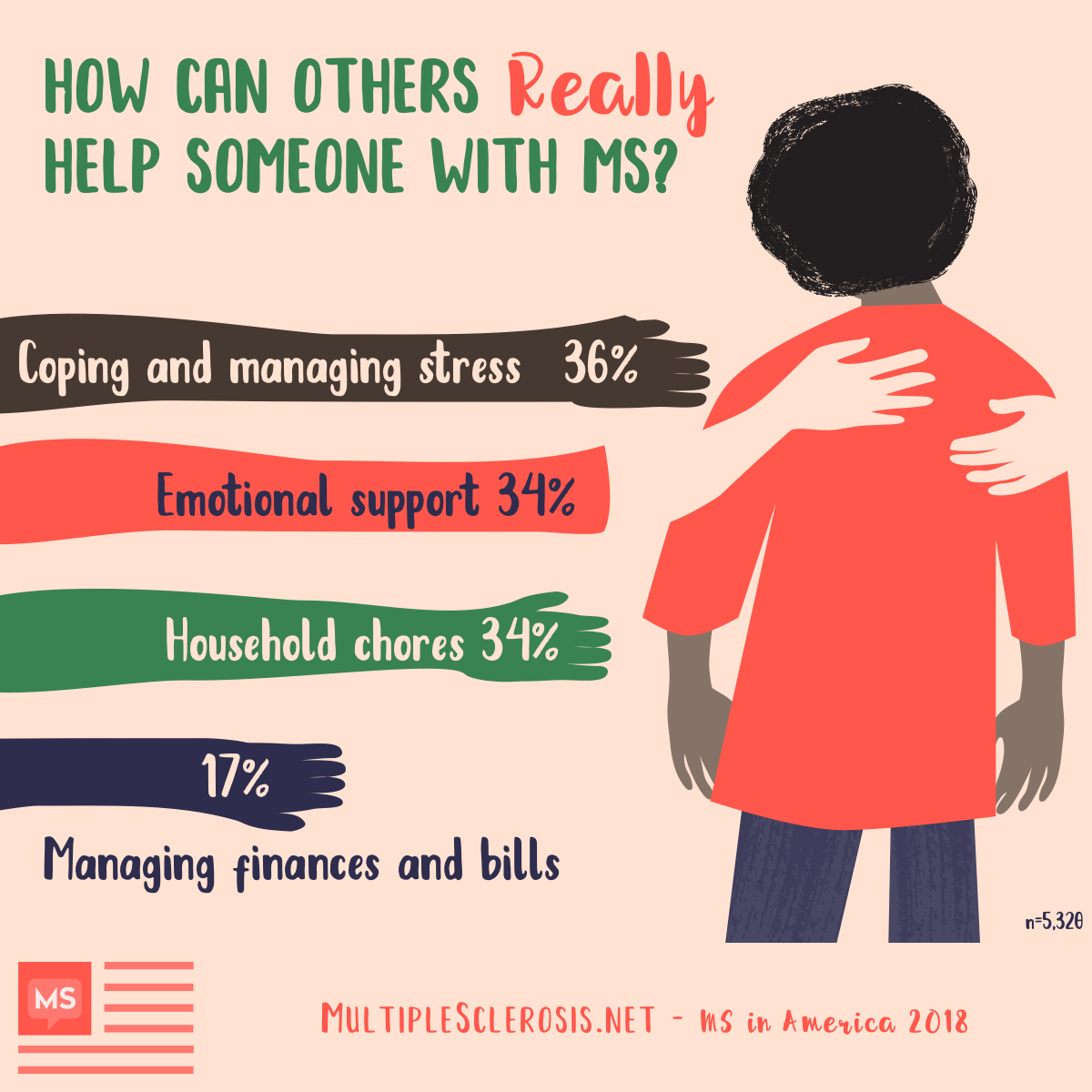
Join the conversation